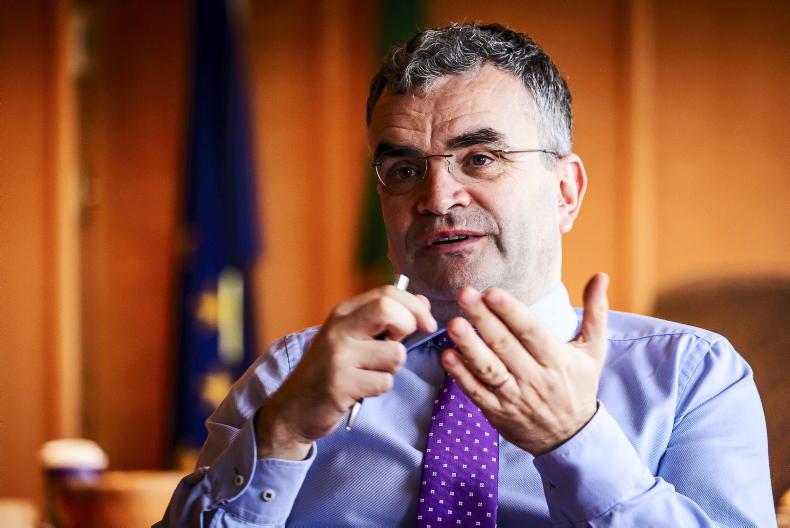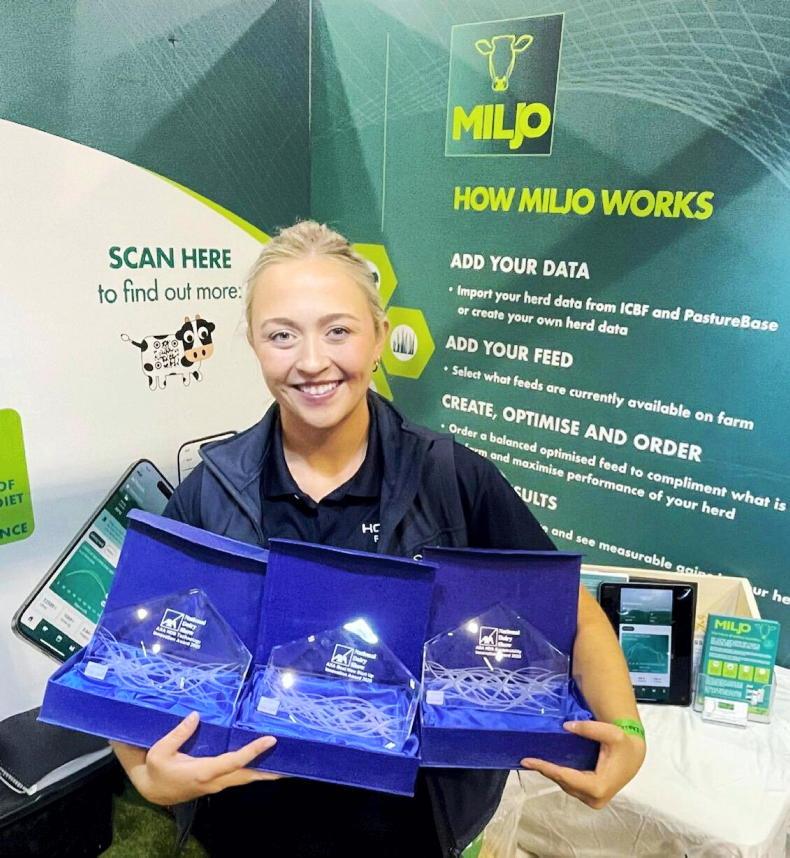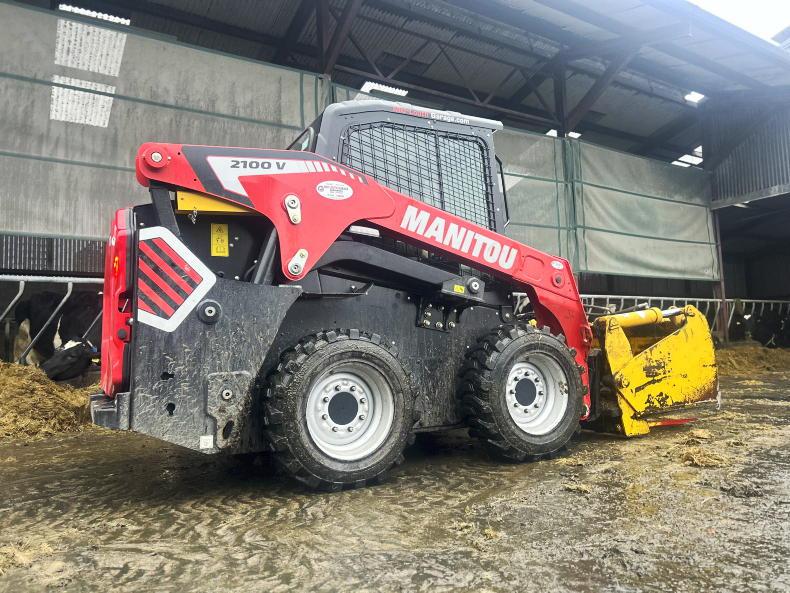South East Technological University (SETU) is leading a new European project that aims to empower rural women. It aims to increase the number of socio-ecological innovations led by women involved in agriculture.
Developing Innovations
GRASS Ceiling, a €2.8m project funded by the European Union (EU) under the Horizon Europe programme, brings together 25 partners from across Europe. It will develop a forum for women to drive socio-ecological* changes.
This is essential to deliver the UN’s goals on gender parity and to realise the EU gender equality strategy. It also aims to achieve the goals of the Green Deal, the Farm to Fork strategy, the Long-Term Vision for Rural Areas, and the European Pillar of Social Rights.
The Living Labs
The project will establish nine living labs for rural female innovators in Ireland, Croatia, Italy, Lithuania, Netherlands, Norway, Scotland, Spain and Sweden. Each living lab will train between six to eight women and establish a network-learning and innovation system that will share and capture insights on policy and practical experience.
Through this, researchers will analyse the current position of women regarding megatrends in European agriculture and rural areas and understand the drivers and enablers for women-led innovations, as well as existing barriers and supports that are needed at Member State and EU levels.
Programme Co-Ordinator
?Professor Sally Shortall works for Newcastle University, and is the Duke of Northumberland Professor of Rural Economy. She has spent a number of years researching women in agriculture.
“Back in 2020, the European Court of Auditors asked me to look at how effectively the EAGF [European Agricultural Guaranteed Fund] is gender mainstreamed. I did that and it’s shocking, it’s the biggest part of the European budget and it pretty much all goes to men”, she says.
This brought a huge interest at the EU commission which asked for research on how women can lead on ecological transitions. After completing other work for the English government, Sally found that women were leading in areas such as green farming, organics and soil restoration.
When SETU achieved university status, it was allowed to hire a UK-based research professor to provide research leadership. Due to Brexit, Sally’s head of department allowed her to lead it through Waterford, where she spends 30% of her time.
Speaking about the aim of the project, Sally says, “We will work across Europe with leading women innovators to capture and share the key elements of their success, with the aim of increasing grassroots impact for women in rural and farming communities. The project will work with both men and women to build a positive and empowering environment for socio-economic and green growth.
“It’s a really good time. Women in agriculture is really on the agenda.” She adds, “The key thing I want to stress is this isn’t just about women, it’s about making the industry better through diversity and providing a different perspective.”
Partner organisations
Women innovators from a rural or farming organisations will co-lead each lab, with Macra ?joining the project in Ireland. GRASS Ceiling’s partners also include high-level European bodies and stakeholders who can influence EU policy.
The partner organisations in each of the countries are responsible for finding female participants to take part in the programme. Sally says, “Each woman is paid €230 per day to participate in these living labs. Having the buy-in of the organisation will make it, we think, more sustainable over the course of the project.”
The project is running for three years. She adds, “We hope to work closely with the Department of Agriculture, Food and the Marine (DAFM), which is also pushing gender equality through the Common Agricultural Policy (CAP) national plans.”
More info
To learn more visit Grass Ceiling
Read more
Irish food businesses encouraged to avail of €3,600 Digital Start grant
It's time for women in farming, but women don’t have the time
South East Technological University (SETU) is leading a new European project that aims to empower rural women. It aims to increase the number of socio-ecological innovations led by women involved in agriculture.
Developing Innovations
GRASS Ceiling, a €2.8m project funded by the European Union (EU) under the Horizon Europe programme, brings together 25 partners from across Europe. It will develop a forum for women to drive socio-ecological* changes.
This is essential to deliver the UN’s goals on gender parity and to realise the EU gender equality strategy. It also aims to achieve the goals of the Green Deal, the Farm to Fork strategy, the Long-Term Vision for Rural Areas, and the European Pillar of Social Rights.
The Living Labs
The project will establish nine living labs for rural female innovators in Ireland, Croatia, Italy, Lithuania, Netherlands, Norway, Scotland, Spain and Sweden. Each living lab will train between six to eight women and establish a network-learning and innovation system that will share and capture insights on policy and practical experience.
Through this, researchers will analyse the current position of women regarding megatrends in European agriculture and rural areas and understand the drivers and enablers for women-led innovations, as well as existing barriers and supports that are needed at Member State and EU levels.
Programme Co-Ordinator
?Professor Sally Shortall works for Newcastle University, and is the Duke of Northumberland Professor of Rural Economy. She has spent a number of years researching women in agriculture.
“Back in 2020, the European Court of Auditors asked me to look at how effectively the EAGF [European Agricultural Guaranteed Fund] is gender mainstreamed. I did that and it’s shocking, it’s the biggest part of the European budget and it pretty much all goes to men”, she says.
This brought a huge interest at the EU commission which asked for research on how women can lead on ecological transitions. After completing other work for the English government, Sally found that women were leading in areas such as green farming, organics and soil restoration.
When SETU achieved university status, it was allowed to hire a UK-based research professor to provide research leadership. Due to Brexit, Sally’s head of department allowed her to lead it through Waterford, where she spends 30% of her time.
Speaking about the aim of the project, Sally says, “We will work across Europe with leading women innovators to capture and share the key elements of their success, with the aim of increasing grassroots impact for women in rural and farming communities. The project will work with both men and women to build a positive and empowering environment for socio-economic and green growth.
“It’s a really good time. Women in agriculture is really on the agenda.” She adds, “The key thing I want to stress is this isn’t just about women, it’s about making the industry better through diversity and providing a different perspective.”
Partner organisations
Women innovators from a rural or farming organisations will co-lead each lab, with Macra ?joining the project in Ireland. GRASS Ceiling’s partners also include high-level European bodies and stakeholders who can influence EU policy.
The partner organisations in each of the countries are responsible for finding female participants to take part in the programme. Sally says, “Each woman is paid €230 per day to participate in these living labs. Having the buy-in of the organisation will make it, we think, more sustainable over the course of the project.”
The project is running for three years. She adds, “We hope to work closely with the Department of Agriculture, Food and the Marine (DAFM), which is also pushing gender equality through the Common Agricultural Policy (CAP) national plans.”
More info
To learn more visit Grass Ceiling
Read more
Irish food businesses encouraged to avail of €3,600 Digital Start grant
It's time for women in farming, but women don’t have the time









SHARING OPTIONS